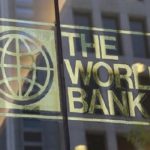Overlooking the lush towers of Puerto Madero, a fine analyst said Friday that Nicolás Dujovne had won the gold medal. As if competing in the Olympics, in his view that the IMF allows him to sell US $ 9,600 million to calm the dollar in the election year is equivalent to the greater triumph. It is already known, the dollarization of portfolios in the case of companies and the savings in the case of individuals, is the DNA of the electoral years. The question is whether that amount is enough to stabilize. And how long will that stability last? The analyst, who requested anonymity, reasoned that the exchange rate has already depreciated, that the adjustment has already been made and that it is difficult to imagine a scenario similar to that of 2018. But he admitted that the situation is fragile. “What you have to investigate is what the government is capable of doing to contain the crises. And regardless of whether he acted late, in the face of complex situations, this government corrects. “
Veteran in crisis Jorge Vasconcelos argues that the US $ 9,600 million surprised because it is an amount “much greater than expected. It is a very strong support. And a signal from the IMF to the market, because when the Fund sees that things do not go, it does not compromise their confidence and it puts the brakes on. This time he did the opposite. ” Vasconcelos stressed that in parallel, the Central Bank tightened monetary policy, perhaps as part of the negotiation with the Fund to prevent capital flight. This chief economist of the Ieral of the Mediterranean Foundation wonders what can go wrong. And he enumerates that it is already assumed that inflation will only begin as of May, that the activity would have already touched ground, and that at this week’s meeting of the US Federal Reserve. it will be confirmed that there will be a single rate hike towards the end of the year by Washington. It also highlights that the provinces, in better financial situation, are executing the public works encouraged by the electoral process. “Politically it favors the provincial oficialismos but helps to start a wheel,” says Vasconcelos to Clarín. Concludes: “There will be several weeks of tranquility.”
Javier Alvaredo, director of the ACM consultancy, focuses on the fact that the exchange rate does not spare anything, that there is fragility and that the government runs behind the political situation. “It is true that there is an international context that the government does not handle and that complicated. But as soon as the dollar moves away a little bit, although the zone of foreign exchange intervention is wide, a high uncertainty is generated. That means that the program is not well designed. And that the market reads that the Central does not have sufficient net reserves. The balance sheet of the Central did not improve and we have very high real rates for a year that are damaging the balance sheets of the companies, which in turn has further depressed the activity “. In the same line, the consultant Ecolatina warned: “The currencies are abundant but ineffective to stop a currency exchange in a pre-election year. Although the economic authorities have added tools to try to maintain the exchange rate calm, there are still weak points. “
The economist Gabriel Rubinstein is convinced that this calm is lasting according to the surveys. Of course, “if there are more chakras that Macri loses, there will be less calm, although it also depends on who the opponent is. If Lavagna is calm, it will be more lasting. If Cristina grows, there will be more complications. “
“We see green branches but red roses have not yet appeared, it is titled JP Morgan’s last report on Argentina. He pointed to a slight recovery in activity in February and expands on the contribution of the record harvest. But there are other economists who do not like that perception very much. Fernanda Vallejos, close to Cristina, complained about the Fund: “Violating its constitutive agreement, the IMF wants to save Macri’s popes,” he said.
















